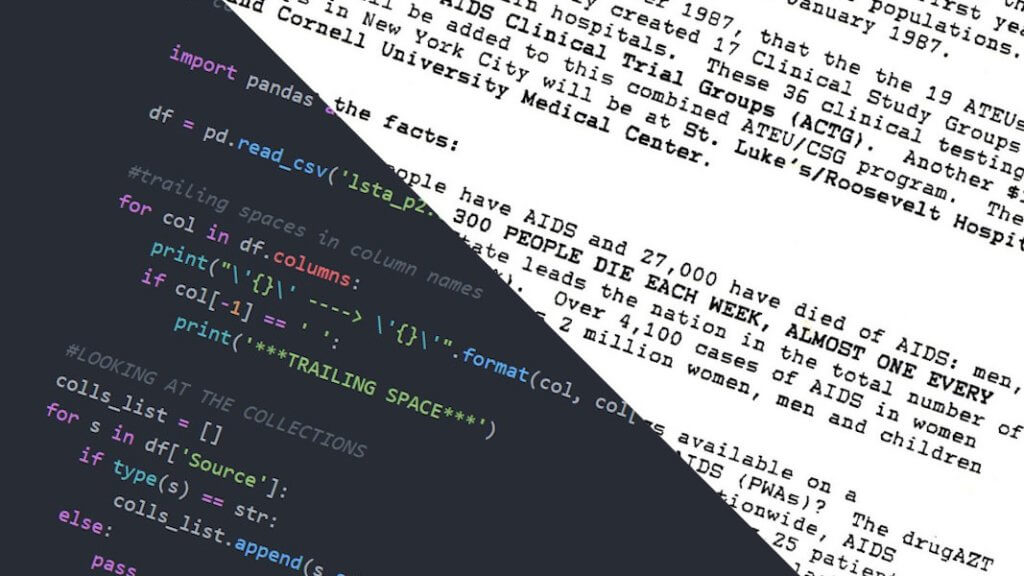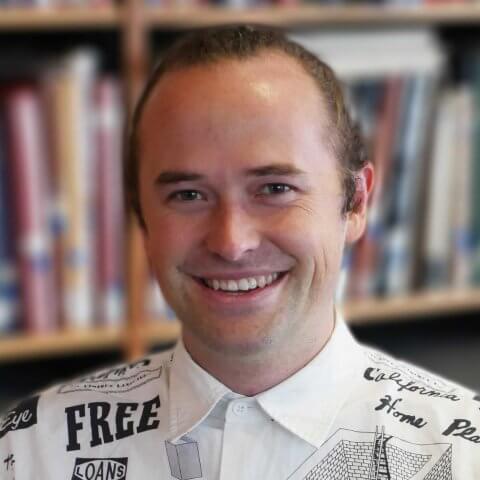On August 11-14, The GLBT Historical Society and the UCSF Archives & Special Collections organized a panel discussion and programming workshop on digital community history in the context of LGBTQ archives and AIDS/HIV. The panel discussion was a fascinating exploration of ethics, practices, and infrastructures of community-centered digital history archiving and research. We are so thankful for the time and effort of our panelists: Anirvan Chatterjee, Kelsi Evans, Clair Kronk, Charlie Macquarie (website), Krü Maekdo, and K.J. Rawson. View speaker bios and the video recording on the GLBT Historical Society’s Youtube page.
The workshop introduced learners to using basic computer programming in the Python programming language to do digital history and analysis of historical text. Learners started with no programming experience whatsoever and together we learned computer programming basics and wrote code to use searching and ontologies to perform advanced analysis of a large archive, beginning to map out gender identities and sexual orientations represented in the text. Instructors Clair Kronk and Charlie Macquarie led the workshop with library staff, Joanna Kang and Rebecca Tang, as helpers. Learners joined remotely from across the United States and in the UK. Programming code and materials from the workshop are available on Github. The No More Silence dataset is published in Dryad.
This panel and workshop were supported by the U.S. Institute of Museum and Library Services under the provisions of the Library Services and Technology Act (LSTA), administered in California by the State Librarian. The opinions expressed herein do not necessarily reflect the position or policy of the U.S. Institute of Museum and Library Services or the California State Library, and no official endorsement by the U.S. Institute of Museum and Library Services or the California State Library should be inferred.


